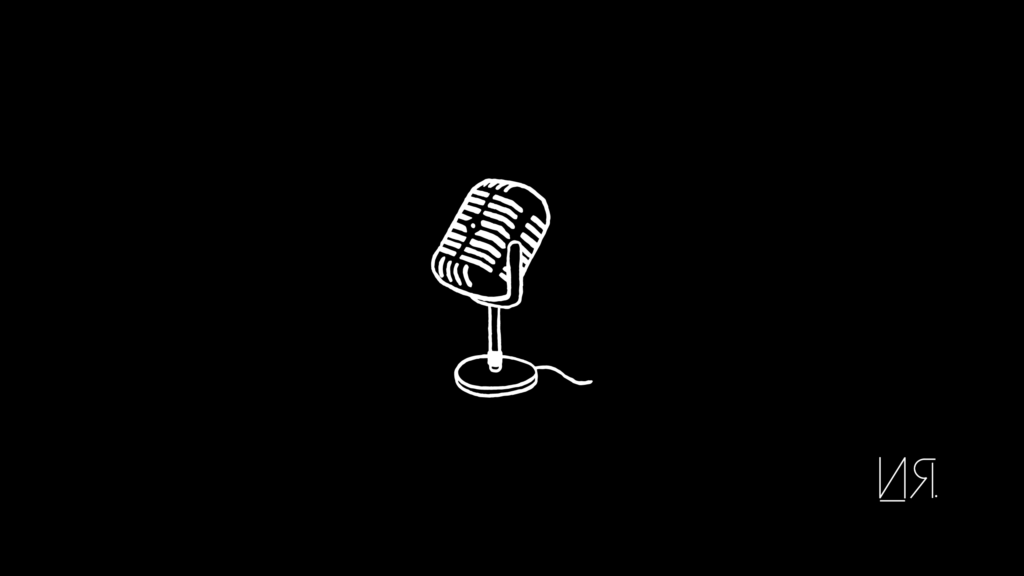It was the summer of 2003, and I had just moved to the US for college.
Humid days on the south side of Chicago, as I got used to the small technology campus where I got my engineering stripes.
I remember during orientation week, after I introduced myself, a fellow newbie asked: “So you’re from Africa. Did you used to live on trees?”
I half-laughed. I thought he was joking. A few seconds later, I realized he was serious.
I was already using Google back in Lagos before moving to the US. “There’s no way this guy can be asking me that question.” I thought.
But he wasn’t the last.
I got questions about: – different types of animals. – how I could have applied to a school in America from an internet-less forest.
I would respond: “It’s a full city with like 20 million people. The first time I saw a giraffe was at a zoo in New Jersey. You can find pictures of where I’m from…use google…damn”
They didn’t care. Their narrative was well-formed. They got it from the news.
Let’s not talk about the questions about wars and child soldiers.
This continued after graduation. Into grad school. Into the workplace.
Over the last twenty years, it distilled the importance of narrative and owning your own story.
Narrate or fade trying
Unfortunately, the narrative has been skewed for centuries.
Ever since the printing press was invented, more emphasis has been put on documented (literary) stories over oral ones.
For the longest time, a certain few had access to the pen and the publishing ink.
The internet continues to democratize access to publishing but most people have lost the art of narrative.
Mostly because they don’t know how beneficial it is to control their narrative.
It is one of the reasons global unhappiness is on the rise.
To build a happier life, you have to touch on the 4 important parts of day-to-day life: health, wealth, connections, and self-expression.
Writing can help you supercharge all four areas.
Oh no, please wait..
…the digital protesters have come for me with their bright phone lights:
“I’m not a writer. I don’t want to write.” (Saying that is like saying I’m not a thinker. I don’t want to think).
“I don’t have a story to tell.” (Everybody does)
“I just don’t have the time.” (It might sound like a paradox but spending time writing helps you create more time)
Oh well, let’s get back into it:
Narrative is very important.
It determines how we look at the world. It shapes our beliefs. It shapes how we are perceived.
Narrative is the thread that ties up the past, present, and future.
We use stories to bring context to our world and to provide the guiding light for us to navigate the future.
The narratives we agree on are collective agreements (spoken or unspoken) that dictate the rules, roles, and responsibilities that we abide by.
Narrative drives our culture.
We are all cultural producers, cultivators, and identifiers.
When we take our stories for granted, we don’t allow ourselves to live a full and well-rounded life.
If you don’t tell your story, someone will tell it for you.
4 Ways Narrative Will Change Your Life
Become aware of the power of narrative.
There’s what you know. There’s what the other person knows. Then there’s the narrative you tell one another about each other.
These narratives are invisible agreements (that you might not have agreed to). If you don’t own it, it can shape your life.
Start controlling your narrative by sharing your unique experience. If you are not ready to do that in public, begin by writing for yourself.
You’ll have more clarity and defined thoughts that help you communicate better.
You’ll find more opportunities to do what you enjoy.
Owning and crafting your narrative will rewire your brain, train your creative mind, and improve your immune system.
You will foster dialogue to innovate and build solutions for your community.
I mean, what’s there not to love about it?
Here are 4 ways that narrative will change your life
1. Narrative is healthy thinking
If you don’t think, someone will think for you.
I recently listened to an Andrew Huberman podcast about a writing protocol that can help boost your physical and mental health.
Andrew Huberman is a medical doctor and professor at Stanford University.
He explained how writing in 4 sessions of 15 minutes can rewire your brain and boost your immune system.
As I listened to all 93 descriptive minutes of the podcast, I thought about the benefits that 9 years of journaling had brought to my life.
Most people think you need to have a perfect thought to write. It’s the opposite.
Writing is the journey you take towards refining the perfect thought. Writing is how you externalize your thoughts. Writing is thinking.
It helps you process your emotional state, bringing context to your experiences.
Not only does it clear your mind and sharpen your mental health, it also has effects on your physical health too.
When you write, you activate your prefrontal cortex. This is the part of the brain that you use for future planning, emotional regulation, and delayed gratification.
With a more active prefrontal cortex, there is better regulation of your nervous system. This in turn boosts your immune system, which makes you more physically healthy.
There is research that shows that writing, particularly in the specific writing protocol described in Huberman’s podcast, reduces symptoms for people with anxiety, depression, lupus, crohn’s disease, arthritis, and more.
Writing each day helps to clear out your mind. You can use it to prioritize and deprioritize tasks daily. It brings order to your world and a good stress release.
Write to improve your thinking. Write to improve your health.
2. Narrative is self-expression
Writing is not just words on paper (or a screen), transferring information. No.
You write to create information.
Self-expression is very important.
Most people are in professions where they can’t be themselves.
Those cold offices of hyper-competition. When you get home, you have to take hours to decompress and thaw it down, just to go to bed and end up back in the corporate cooler.
How about the rigidity of back-to-back Zoom calls? Oh no, the terror on our brain cells continues.
Countless hours of repressing who you are is unhealthy. It builds up stress in the body.
When we get to express ourselves, we learn more about who we are and find internal motivations.
We leverage creativity to connect unique thoughts and patterns in our minds and discover new things.
The way creativity has been operationalized in the last 70 years is through convergent and divergent thinking.
Divergent thinking is a thought process used to generate creative ideas by exploring many possible solutions. This is followed by organizing and structuring ideas through convergent thinking.
This all relies on memory, which is boosted by writing and telling stories
To add to that, there is more recent research about the use of narrative theory to boost creativity.
Narrative is action-generating: a series of decisions made in unfamiliar and imagined contexts.
When we write stories, we train your pattern recognition.
Why is it important to be creative?
Well unless you are working at a factory and turning knobs all day, you are probably a knowledge worker.
Knowledge workers solve problems.
To solve problems you need to nurture your creativity.
I bet you never thought writing something like fiction could ever help you land your next job, give you a pay raise, or solve a pressing community issue.
Write to express yourself.
3. Narrative is wealth
Ordered information is valuable.
The world can be uncertain and disorderly for a lot of us. What we seek are things that bring order.
When you create information based on your unique perspective and you document this knowledge, another person in the same position will not have to overcome the same challenges.
They can refer to your documentation.
They value this ordered information. Saving people this time and effort is valuable.
People will pay for this documentation which can come in books, courses, procedures, workshops, and consultation calls.
Document to build your wealth.
You have a supercomputer in your pocket. That supercomputer is connected to a web of interconnected information.
This web has 5.3 billion people on it.
If you could invent a time machine and travel to the past to tell your great-grandparents this story, they’d say “Stop listening to that African boy and all his black magic.”
Yet this superpower can also be an Achilles heel if you choose to be reactive instead of active.
A reactive approach: “I’m just going to leave my notification on all my apps”
The endless information stream pings, dings, and rings. You have no choice but to fall for the distracting digital siren. You end up scrolling for hours and forget why you picked it up in the first place.
The tech companies monetize your eyeballs and sell impressions to advertisers. It ain’t free – you are the product.
OR
You can take an active role. Use this supercomputer to create. Reduce the possibilities of distraction.
Create something useful and share it with the world.
The reason most people don’t create content is because of high-school insecurities.
You’re still concerned about what that half-ass athlete and prom queen thinks about what you’re doing.
You’re still concerned about the hundreds of “peers” that you remember from college and grad school.
You’re not as concerned about the thousands of people that you can help and serve but haven’t found yet.
Whenever there is a change in media technology, we see a big shift in brands across categories.
We saw brand shifts from radio to television, and then television to laptop.
We are in the phone era and social media is the distro!
Better go get the plug.
Not only to charge your phone but to plug you into your community.
Over the next 6 years, writing online will be the new resume.
Start building.
4. Narrative is reciprocity
I remember when I released a mixtape while I was in grad school.
I used my music to tell stories about my experience at that moment.
Most people liked the funky beats. I got some of my main homies to rap and do some poetry over a few songs. Collaborated with a friend who DJed.
Towards graduation, one of the students who was the year behind me came up to me.
She had listened to it and told me that it helped her feel like she was going to be alright.
I was surprised. I didn’t know it could have that impact. That was the main validation I got from making that album.
What most of us seek is true connection – to other human beings.
We are social beings. We thrive on connection and reciprocity.
One time-tested way we have used to build social bonds is through stories.
We share stories to be vulnerable, to build intimacy, and to be hopeful.
Narrative can help boost empathy and foster dialogue, strengthening the glue of social cohesion in our communities.
We feel a lot happier when we make and prioritize human connection and build meaningful relationships.
The more people see and understand your story, the more they can see themselves in you.
It humanizes you, especially in a cold system that’s built on industrial production and dehumanization.
Storytelling is the antidote.
Now, imagine a world where everyone gets to tell their story. Where everyone understands each person’s situation, history, story.
I think that will be a better world.
Writing can help you build it.
Final Thoughts
Writing is not just about grammar, syntax, and semantics. Forget all that school jargon.
Writing is narrative and it can help you lead a happier life. It improves health, builds wealth, fosters relationships, and allows true self-expression.
Should I keep writing about the benefits of narrative?
I think it’s time you go write.
Yours truly, Nifemi



